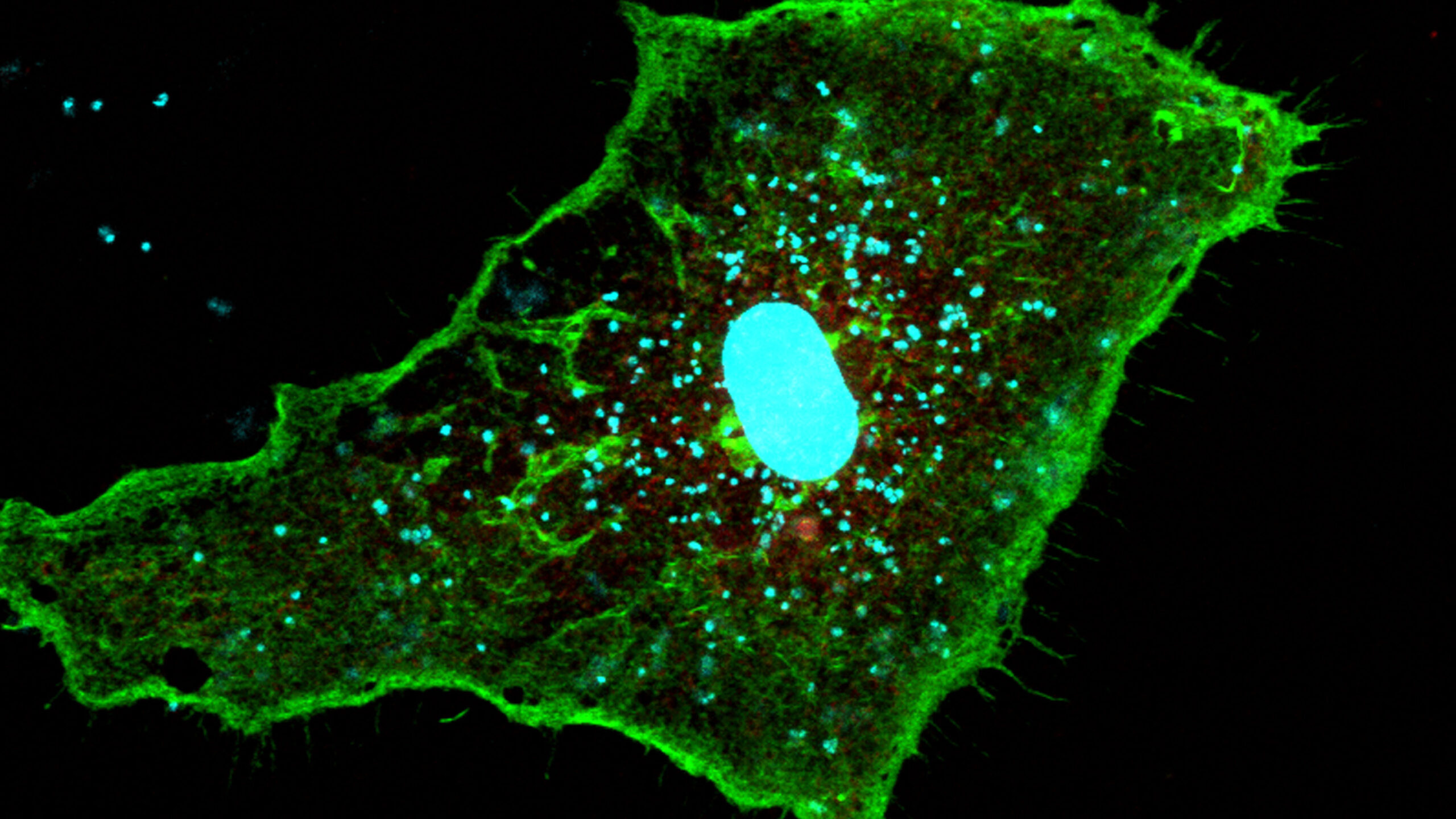
Undergraduate Programs
We offer two avenues for undergraduates interested in toxicology.
Minor in Toxicology
The Toxicology program offers an undergraduate minor in Environmental Toxicology that is available to all baccalaureate degree students at North Carolina State University. The minor is intended to provide undergraduate students with an understanding of how chemicals and physical agents can adversely affect biological systems and the environment, including the mechanisms of chemically induced toxicity, the fate and effects of chemicals in the environment, and the evaluation of chemical hazards and risks.
Given the importance and high level of interest in protecting human and environmental health, environmental toxicology is a contemporary field of study that is of great interest to many undergraduate students. This program provides undergraduates with exposure to two of the University’s major academic thrusts: Genomic Sciences and Environmental Sciences. The interdisciplinary and applied nature of environmental toxicology interfaces with virtually all academic programs within the College of Science (COS).
Successful completion of this course of study will allow students to:
- Understand many of the fundamental principles of chemistry and toxicology that are essential to understanding the environmental toxicology and chemistry issues of today.
- Develop knowledge based on a series of inter-related scientific principles and understand how and why processes and events occur.
- Connect and utilize these scientific principles to investigate environmental problems, quantitatively predict and model chemical exposure and effect, assess risk, and investigate environmental problems and track them back to possible causes. This will require the ability to follow a chemical from its source, its modification in the environment, its exposure to humans and other biota, and how it elicits adverse effects.
- Appreciate and conceptualize the complexity of these issues and evaluate the variability and uncertainty in environmental toxicology and chemistry assessments.
- Learn about the scientific method, hypothesis testing, the difference between statistical association and causation, the importance of underlying assumptions and mechanisms, and extrapolation (e.g., through time, space, and level of biological organization).
- Be exposed to concepts in environmental litigation and risk assessment.
How to Apply

Course Requirements
The Environmental Toxicology Minor will require 15 credit hours. Nine credit hours will be in required courses and the remaining six hours in electives. The courses are distributed as follows:
Required Courses – 9 Credit Hours
- TOX 401 – Principles of Toxicology (F) 4
- TOX 415 – Environmental Toxicology and Chemistry (S) 4
- ET 490 – Senior Seminar in Environmental Technology (S) 1
- MB 490 – Senior Seminar in Microbiology (F, S) 1
Elective Courses – 6 Credit Hours
- TOX 201 – Poisons, People and the Environment (F, S) 3 (Note: This course may NOT be used as an elective if it is taken after, or concurrently with, TOX 401 or TOX 415)
- TOX 492 – External Learning Experience (F, S, Sum) 1-3
- TOX 495 – Special Topics in Toxicology (F, S) 1-3
- TOX 499 – Undergraduate Research in Toxicology (F, S, Sum) 1-3
- BCH 451 – Principles of Biochemistry (F, S, Sum) 3
- BO (ZO) 360 – Introduction to Ecology (S, Sum) 3
- CE 280 – Principles of Environmental Engineering (F) 3
- CH 315 – Quantitative Analysis (F, S, Sum) 4
- CH (MEA) 323 – Earth System Chemistry (S) 3
- ET 310 – Environmental Monitoring and Analysis 3
- ES 100 – Introduction to Environmental Science 3
- FS (MB) 405 – Food Microbiology (F) 3
- FW (ZO) 353 – Wildlife Management (F) 3
- GN 411 – Principles of Genetics (F, S, Sum) 4
- NTR (ANS) 419 – Human Nutrition in Health and Disease (F) 3
- ST 311 – Introduction to Statistics (F, S, Sum) 3
- TC (TAM) 401 – Environmental Aspects of the Textile Industry (S) 3
- ZO 421 – Principles of Physiology (F, S, Sum) 3
- ET 201 (202, 301, 302, 401) – Environmental Technology Laboratory 1
- ET (MEA) 320 – Fundamentals of Air Pollution 4
- ET 450 – Environmental Regulation 3
Honors Research – Optional
If elected, you must choose a topic in toxicology.
- ALS 498 – Honors Research (F, S, Sum) 1-3
- ALS 499 – Honors Research (F, S, Sum) 1-3
Other courses may qualify if they contain significant content related to toxicology; consent of the Toxicology Undergraduate Program Coordinator is required. A grade of C- or better is required for all courses taken to fulfill the minor requirements.
Courses
TOX 201 – Poisons, People and the Environment
There is increasing public interest and concern over matters of human health and environmental quality. We commonly hear news reports of health problems that may be associated with some chemical(s), but few people have sufficient background to understand the problems in detail. Toxicology, the study of adverse effects of chemical contaminants on living systems, forms the basis of our ability to predict and prevent adverse effects to human health and the environment .Without an understanding of the basic principles of toxicology, one cannot make a fully informed decision about the true risks and benefits of anthropogenic and natural chemicals to humans and other organisms. This course will provide a broad overview of toxicology and allow students to recognize the relevance of the science in their lives and surroundings. The lecture will be delivered in a manner that addresses the needs of the overall student population as well as the general public.
By the end of this course, students will be able to:
- Provide a historical perspective of the science of poisons
- Identify and apply the fundamental principles toxicology
- Explain how and why toxicological processes and events occur in nature
- Evaluate the adverse effects of chemical contaminants to human health and the environment
TOX 401 – Principles of Toxicology (Spring)
Introduces students to the basic principles of toxicology. Will cover the history and scope of the field; absorption, distribution, metabolism and elimination of toxicants; target organ toxicity; mechanisms of toxic action; carcinogenesis; environmental toxicology as well as human and ecological risk assessment.
Successful completion of this course will allow students to:
- Understand many of the fundamental principles toxicology
- Develop knowledge based on a series of inter-related scientific principles and understand how and why toxicological processes and events occur
- Appreciate and conceptualize the complexity of toxicological issues and gain insight into the full breadth of the field of toxicology
TOX 415 – Environmental Toxicology and Chemistry (Fall)
Provides students with an appreciation and understanding of the principles of environmental toxicology and chemistry including the sources, fate, and effects of chemicals in the environment. Emphasis is on contemporary problems in human health and the environment.
Successful completion of this course will allow students to:
- Acquire knowledge of the fundamental principles of chemistry and toxicology that are essential to understanding the environmental toxicology and chemistry issues of today
- Develop knowledge based on a series of inter-related scientific principles and understand how and why environmental / toxicological processes and events occur
- Connect and utilize these scientific principles to investigate environmental problems, quantitatively predict and model chemical exposure and effect, and assess risk
- Appreciate and conceptualize the complexity of these issues and evaluate the variability and uncertainty in environmental toxicology and chemistry assessments
TOX 499 – Undergraduate Research in Toxicology
Students interested in completing research in Toxicology should only register for TOX 499 if they have a faculty member in our program that has agreed to take them on for the semester.
Please go to the faculty section website and look at the “core” faculty. The student should then contact that faculty member directly to inquire about working in their lab.
TOX 425 – Environmental Risk Assessment (Under Development)
Everything we do involves some level of risk. Risk Assessment as a science is a way to quantitatively weigh the benefits and risks of an action (i.e. should a pesticide be approved for use) This course is intended to provide students with an appreciation and understanding of the principles of environmental risk assessment including:
- Hazard Identification
- Toxicity Assessment
- Exposure Assessment
- Risk Characterization
- Emphasis is placed on contemporary problems in human health and the environment.

Honor’s Research Program
Students interested in pursuing a research internship should learn more about each faculty member’s research focus. Interested students should contact a faculty member for information about the availability of undergraduate research positions and application procedures.
Students selected to participate in the program will be advised to register for the TOX 499 (Undergraduate Research in Toxicology) or ALS 498 or 499 (CALS Honors Research) or 492 (External Learning Experience) course to receive academic credit for their research work experience.